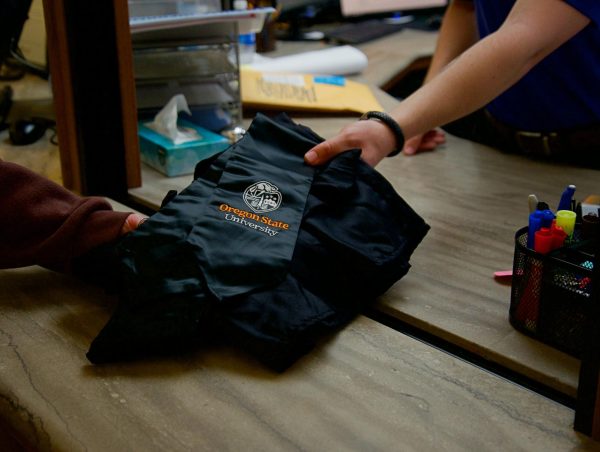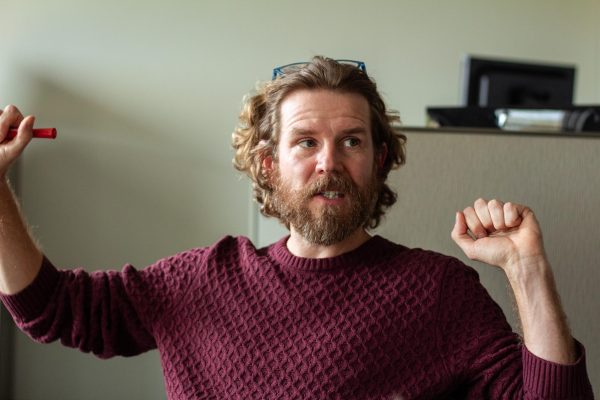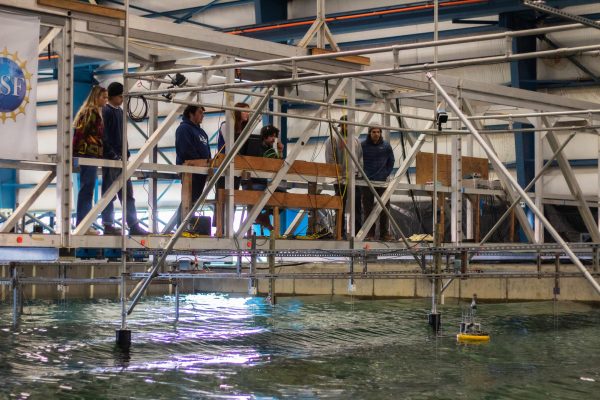Myths about studying abroad
February 28, 2019
It may be your dream to study abroad and see the world, but it’s hard to know where to start to make your dream your reality. Maybe you want to learn a language while exploring the streets of Tokyo or maybe you’d fancy a cup of tea in London. Many students long to study abroad, but the process of making it happen seems impossible. Here are some common myths about the process of studying abroad:
It’s too expensive:
There are many ways to gather the necessary funding for your study abroad experience. While the cost of going abroad varies based on the program you choose, students can work with the advisors at the Office of Global Opportunities to find a program that fits their budget.
One employee at the Office of Global Opportunities explains a couple of ways for students to receive funding. “When students go on an OSU-sponsored program, they can use most forms of financial aid to help pay for their study abroad or internship program. Additionally, there are many scholarships students can apply for at the departmental level in addition to specific OSU scholarships for studying abroad. There are federal scholarships that provide additional funds to students who want to study abroad. For example, Pell-eligible students can apply for a Gilman award and receive guidance in the application process from the Prestigious Scholarship office.”
Studying abroad may be expensive, but if you want it bad enough, you can gather the funding. Money doesn’t have to hold you back from studying abroad as much as some think it does.
I need to speak another language to go abroad:
Whereas some programs require you to speak the native language of the country you’re going to, there are many ways to go abroad without speaking another language.
You can study abroad in an English-speaking country! Or if you’d rather experience a culture even more different from your own, you can always study in another country and take classes offered in English.
Another option is to study abroad through a faculty-led program. In this type of program, you will go abroad with other students from Oregon State University and some of the faculty will be teaching the classes. These classes will be taught in English, with some exceptions.
The application takes too long and I’m very busy:
Once you choose the program you want to apply to, the application process really doesn’t take a long time. Some of the things a program may require is an official transcript, a letter of recommendation and/or answering a couple of essay questions. Your program may require all of these or only one of these.
How can I make this possible for myself?:
To get started, you create an account at OSU’s Office of Global Opportunities website. Here, you can browse possible programs and begin the process of choosing which one you want. To create an OSU GO account, visit https://undergraduate.oregonstate.edu/osugo.
Laura Marie Hampton, a Study Abroad Manager at the Office of Global Opportunities, offers some insight on how to apply. “Research is key to identifying a program where students can take classes applicable to their major, minor or baccalaureate core requirements,” she states.
“Students do tend to start by identifying a region or country they are interested in and then look at program options there. Depending on what they discover, they’ll decide to widen or narrow their search. Typically talking with a peer advisor is really helpful along with checking with an academic advisor for their suggestions of how to select a program.”
Is it worth all the trouble?:
Different people will answer this question differently, but according to Hampton, there are many benefits to studying abroad.
“A study abroad or international internship program provides students immersive experiences in another country in an academic or professional context. Students get to know a new culture from the ground up and find that they need to be flexible and adaptable as they transition to living in another country,” Laura Marie Hampton explains.
“Even small things may have been different such as how you form a line at the post office or greet people as you enter a store. These observable differences also indicate deeper ways in which cultures vary across the world and while most students report that there were bumps and challenges along the way, it is these differences and their ability to successfully navigate in another culture that students find most rewarding,” Hampton said.
Studying abroad can open your eyes to view the world in a way you never knew was possible. You gain insight into other types of people and other cultures, from the big differences of language to the small differences of greeting others.
Taking part in one of these abroad programs can help you to grow not only as a person, but it helps you in your career path as well. “They [students who partake in studying abroad] gain a different perspective on their academic focus and for those studying another language, gain increased proficiency,” Hampton said.
“For some, this is their first time far away from family and friends and the ability to be successful abroad builds their confidence. If they can live in Tokyo, they can live anywhere! They also see the myriad of ways people do the same function – how fish is cooked, how families interact, how governments are organized, etc.- and this opens their mind to new ways of thinking and informs how they think about their own community and culture.”
Overall, studying abroad is really not quite as impossible as some may think. Gathering the funds to go abroad is always doable, even if you have to do a little extra work to make it possible. Speaking another language is not always necessary and there are always ways to go abroad without being bilingual. Studying abroad can be tough, but the end product can be so worth it. Learning about yourself and your career while taking classes in another country is an experience that is well worth the time it takes to make it possible.


















